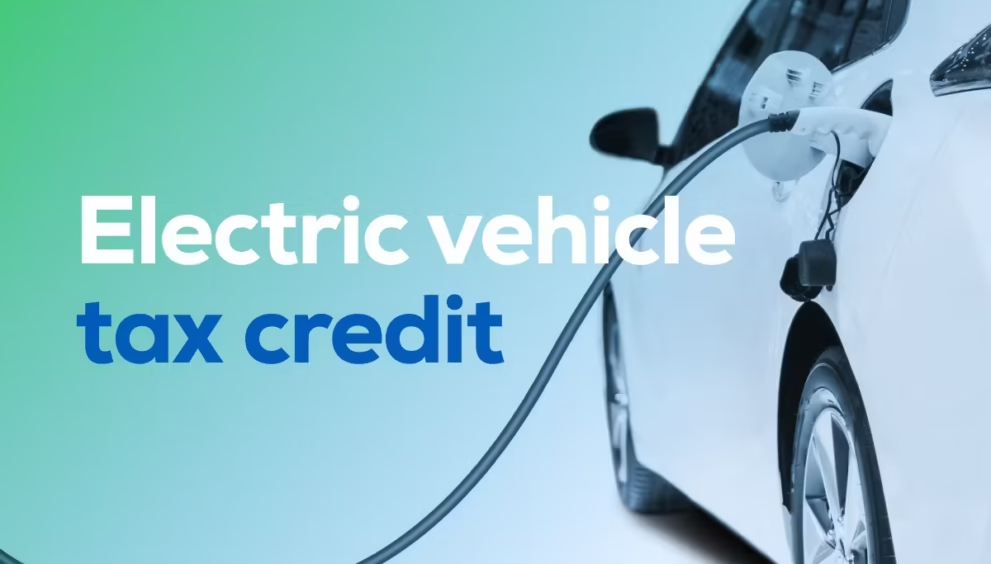EV Tax Credits & Rebates 2025: State-by-State Guide (Updated) Now

EV Tax Credits & Rebates 2025: State-by-State Guide (Updated)
Electric vehicle adoption is accelerating across North America, driven largely by substantial tax credits and rebates that can save buyers thousands of dollars. With incentive programs changing annually and varying significantly by location, understanding your local EV tax credit opportunities is essential before making your purchase. This comprehensive guide breaks down federal and state-level EV incentives for 2024, helping you maximize your savings on your next electric vehicle.

Federal EV Tax Credits: The Foundation of Savings
United States Federal Incentives
The federal EV tax credit remains the cornerstone of electric vehicle savings in the United States. You may qualify for a clean vehicle tax credit up to $7,500 if you buy a new, qualified plug-in electric vehicle or fuel cell electric vehicle. This credit applies to vehicles purchased in 2024, with an important update: Since January 1, 2024, the new EV tax credit and the used EV tax credit are available instantly at the time of sale.
For used electric vehicles, the federal program offers additional support. If you buy a qualified used electric vehicle from a dealer for $25,000 or less, you may be eligible for a clean vehicle tax credit of up to $4,000. This makes electric vehicles more accessible to budget-conscious buyers and expands the market for pre-owned EVs.
The application process has been streamlined for 2025. Taxpayers who transfer the credit to the dealership get an immediate discount on the car rather than having to wait to claim a credit on their taxes. This point-of-sale option eliminates the need to wait until tax season to realize your savings.
Canadian Federal Incentives
Canada’s federal EV incentive program continues to support electric vehicle adoption through the Incentives for Zero-Emission Vehicles (iZEV) program. Up to $5,000 is available at the point of sale to Canadian individuals and businesses for the purchase or lease of light-duty ZEVs, with battery electric, hydrogen fuel cell, and longer-range plug-in hybrid vehicles eligible for the full amount.
The program includes different tiers based on vehicle type. Shorter range plug-in hybrid electric vehicles are eligible for up to $2,500. This tiered approach encourages adoption of fully electric vehicles while still supporting plug-in hybrid technology.

State and Provincial Programs: Amplifying Your Savings
Leading U.S. State Programs
Colorado continues to offer one of the most generous state-level incentives. If you pay taxes in Colorado, you’re eligible for a state tax credit of $3,500 with the purchase or lease of a new EV with an MSRP up to $80,000. This credit can be stacked with federal incentives, creating substantial total savings.
California, despite not having a statewide purchase rebate in 2025, maintains various local utility rebates and the Clean Vehicle Rebate Project for income-qualified buyers. Many California utilities offer rebates ranging from $500 to $2,500, making the state’s overall incentive landscape competitive despite the absence of a universal state rebate.
Canadian Provincial Landscape
The Canadian provincial incentive landscape has seen significant changes in 2025. As of 2025 Quebec lowered its rebate from $8,000 for the purchase of a battery-electric vehicle to $7,000, with the province intending to gradually reduce the rebate on an annual basis until 2027. However, these rebates remain stackable with federal incentives.
British Columbia’s program continues with income-based eligibility. EV drivers in British Columbia qualify for up to $4,000 toward the purchase or lease of a fully electric vehicle and up to $2,000 toward the purchase or lease of a plug-in hybrid electric vehicle, with this incentive varying by income.
As of 2024, Ontario will no longer offer direct provincial rebates, placing greater emphasis on federal incentives and utility programs for Ontario residents.

Additional Incentives and Considerations
Home Charging Infrastructure
Beyond vehicle incentives, many jurisdictions offer rebates for home charging equipment. If you are installing an EV charger at your home, the federal credit is generally 30% of the charger’s cost or $1,000, whichever is smaller. This federal tax credit helps offset the cost of essential home charging infrastructure.
Utility and Local Programs
Many electric utilities across North America offer additional rebates for EV purchases, often ranging from $200 to $1,500. These programs frequently include time-of-use electricity rates that can significantly reduce charging costs. Contact your local utility company to inquire about available programs, as these are often underutilized sources of savings.
Income and Price Restrictions
Most incentive programs include income limitations and vehicle price caps to ensure benefits reach intended recipients. Federal programs typically cap eligibility at $300,000 for joint filers and $150,000 for single filers, while vehicle prices are generally limited to $55,000 for cars and $80,000 for SUVs and trucks.

Maximizing Your EV Incentive Strategy
To optimize your EV incentive benefits, research all available programs in your area before purchasing. State and local EV incentives can be combined with federal incentives and can really add up!
Consider timing your purchase strategically, as some programs have annual funding limits and may be exhausted before year-end. Additionally, verify vehicle eligibility before finalizing your purchase, as manufacturer compliance with domestic content requirements can affect eligibility.
The EV incentive landscape continues evolving, with programs designed to accelerate electric vehicle adoption while supporting domestic manufacturing. By understanding and leveraging available incentives, buyers can significantly reduce the cost of electric vehicle ownership while contributing to cleaner transportation systems across North America.
Note: Incentive programs change frequently. Always verify current program details and eligibility requirements with relevant agencies before making purchase decisions.






















































































































































































































































































































